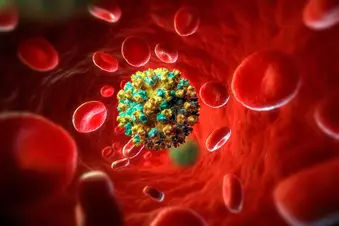Quiz: Myths and Facts About Hepatitis C


Question 1/10
Hepatitis C is rare.
- True
- False
Question 2/10
The liver is the body part most affected by hepatitis C.
- True
- False
Question 3/10
The first symptom of hepatitis C is a high fever.
- True
- False
Question 4/10
Teenagers are most likely to have hepatitis C.
- True
- False
Question 5/10
You can get hepatitis C by having sex.
- True
- False
Question 6/10
Getting tattoos and piercings can put you at risk for hepatitis C.
- True
- False
Question 7/10
A vaccine can prevent hepatitis C.
- True
- False
Question 8/10
Hepatitis C usually goes away on its own.
- True
- False
Question 9/10
Hepatitis C can be treated with medication.
- True
- False
Question 10/10
Once you've been treated for hepatitis C, you can’t get it again.
- True
- False